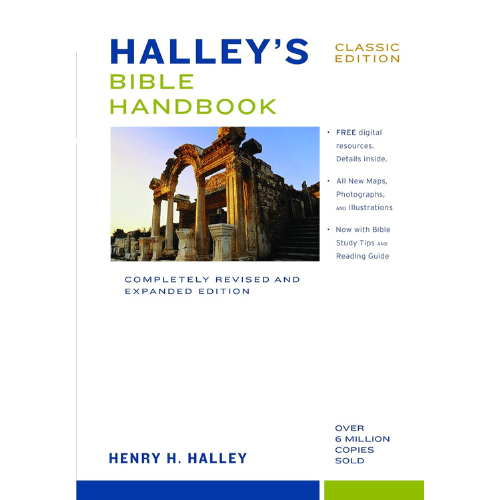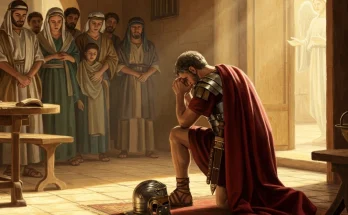Setting the Stage: Who Is Jesus Speaking To?
Have you ever felt secretly proud of your spiritual progress—only to realize your heart was quietly judging someone else? That’s exactly who Jesus had in mind when He told the parable of the Pharisee and the tax collector. In Luke 18:9–14, He speaks to those who “trusted in themselves that they were righteous, and treated others with contempt.” These weren’t pagans or outsiders—these were religious people. People who believed they were doing everything right.
Jesus paints a vivid picture: two men go to the temple to pray. One is a Pharisee, respected and devout. The other is a tax collector, despised and seen as corrupt. Yet shockingly, only one walks away justified before God—and it’s not the one we’d expect.
This parable of the Pharisee and the tax collector isn’t just a lesson about ancient religious elites. It’s a mirror held up to our own hearts. In our world of comparison, performance, and social media validation, it’s easy to fall into the same trap. We may not say it aloud, but deep down, we sometimes believe God is lucky to have us.
But Jesus calls us to something deeper—something truer. He calls us to humility, repentance, and mercy.
As we walk through this parable together, let’s ask ourselves: Are we really listening with open hearts? Are we willing to see ourselves in both of these men?
This story isn’t just about them—it’s about us. And the lesson could change everything.
Halley’s Bible Handbook, Classic Edition
The bestselling Bible handbook of all time with millions of copies sold, the Halley’s Bible Handbook makes the Bible’s wisdom and message accessible to everyone.
Characters in Contrast: Pharisee vs. Tax Collector
The parable of the Pharisee and the tax collector hinges on a striking contrast between two very different men. On the surface, one is righteous and respected, while the other is shameful and scorned. But as Jesus often does, He turns our expectations upside down.
The Pharisee: Respected and Religious
Pharisees were known for their strict devotion to the Law of Moses. They prayed regularly, fasted twice a week, and gave tithes of all they earned. In Jewish society, Pharisees were seen as the spiritual elite. Most people admired them and considered them the gold standard of holiness.
This particular Pharisee in the parable does everything by the book. He even thanks God for his moral superiority. At first glance, he seems like a spiritual success story. Yet, Jesus reveals a different reality hidden beneath the surface.
The Tax Collector: Rejected and Hated
In contrast, tax collectors were considered the worst of sinners. They worked for the Roman government and often overcharged their fellow Jews. Many saw them as traitors to their own people. They were excluded from religious life and labeled as unclean.
The tax collector in Jesus’ story comes to the temple fully aware of his sin. He stands far off, won’t even lift his eyes, and simply begs for mercy. No one in Jesus’ audience would have expected this man to be the hero.
The Great Reversal
Here’s where the parable of the Pharisee and the tax collector shocks us. Jesus says the tax collector goes home justified, while the Pharisee does not. Why? Because God isn’t impressed with outward appearance. He looks at the heart.
This reversal flips our assumptions. The one who appeared righteous was actually proud. The one who seemed unworthy was humble and honest before God.
Looking at Ourselves
We live in a culture that still judges by appearances. We admire those who look polished, speak well, and do all the “right” things. But how often do we overlook quiet humility? Do we assume someone is spiritual because they look the part?
This parable challenges us to go deeper. Let’s stop measuring people by what we can see. Instead, let’s value what God values—a broken and contrite heart.
The Pharisee’s Prayer: Religion Without Repentance
In the parable of the Pharisee and the tax collector, Jesus begins by letting us listen in on the Pharisee’s prayer. At first, it sounds devout. He stands confidently and begins with the words, “God, I thank you.” But as we keep reading in Luke 18:11–12, we realize something is off.
A Self-Focused Prayer
Rather than focusing on God, the Pharisee focuses on himself. He lists his good deeds: fasting twice a week and giving tithes. He even praises himself by contrasting his life with others—especially “this tax collector.” That’s not humility. That’s spiritual pride.
Parables: The Mysteries of God’s Kingdom Revealed Through the Stories Jesus Told by John MacArthur
His posture also speaks volumes. He stands apart, physically and emotionally separating himself. He doesn’t seek God’s mercy. Instead, he boasts about his own righteousness. The prayer becomes a performance rather than a plea.
No Confession, No Dependence
What’s missing is just as important as what’s said. There is no confession of sin. No awareness of his need for grace. No dependence on God’s mercy or goodness. Though he thanks God, it’s clear he sees himself as the source of his righteousness.
This kind of prayer is dangerous. It masks pride with religious language. It turns spiritual practices into badges of honor rather than expressions of love or surrender.
Is Pride Hiding in Our Prayers?
When we pray, do we come to God like the Pharisee—listing our good deeds, comparing ourselves to others, and expecting applause?
Or do we come broken, honest, and hungry for grace?
The parable of the Pharisee and the tax collector shows us that pride can sneak into even our most sacred moments. It’s not just about what we say; it’s about the posture of our hearts.
Let’s learn from this example. True prayer isn’t about proving ourselves—it’s about opening ourselves to God. When we let go of comparison and self-righteousness, we make room for His mercy to meet us.
The Tax Collector’s Cry: Mercy Over Merit
In the parable of the Pharisee and the tax collector, the second man’s prayer is short—but powerful. Luke 18:13 tells us everything we need to know about his heart.
Posture of Humility
The tax collector “stood far off.” He wouldn’t even lift his eyes to heaven. Instead, he beat his chest in sorrow. His body language shouted what his words would soon reveal—he knew he was unworthy. Every movement reflected humility and reverence before a holy God.
While the Pharisee stood tall and proud, this man stood low and broken. He didn’t bring a résumé of good works. He brought a repentant heart.
A Simple, Honest Prayer
His words were few: “God, be merciful to me, a sinner!” He didn’t make excuses. He didn’t compare himself to others. He knew he had nothing to offer. His plea for mercy came from deep within.
The Greek word for “be merciful” points to atonement. He wasn’t just asking for kindness—he was crying out for forgiveness through a covering. He understood that only God could cleanse his sin.
This man relied not on merit, but on mercy.
Real Repentance Today
Honest repentance still looks like this today. It isn’t polished or proud. It doesn’t try to impress God. Instead, it comes with full awareness of our need. It confesses sin, trusts God’s grace, and turns back to Him.
In the parable of the Pharisee and the tax collector, Jesus shows us what a sincere heart sounds like. It doesn’t take fancy words. It takes humility, truth, and a cry for mercy.
So how do we approach God? Do we come clinging to our own goodness? Or are we willing to admit our deep need?
Let’s follow the example of the tax collector. When we drop the act and come with open hearts, God meets us with grace.
The Verdict from Jesus: Who Went Home Justified?
Jesus closes the parable of the Pharisee and the tax collector with a surprising and powerful statement. In Luke 18:14, He says, “I tell you, this man went down to his house justified, rather than the other.” That single sentence would have shocked His audience.
What Does “Justified” Mean?
To be justified means to be declared right before God. It’s a legal term, like a judge declaring someone innocent. It doesn’t mean the person was perfect—but that God, in His mercy, sees them as clean.
The tax collector, not the Pharisee, was the one who received this verdict. Why? Because he came in humility, not pride. He asked for mercy, not a reward.
A Complete Reversal
In the eyes of the people, the Pharisee would have looked like the obvious choice. He was moral, respected, and religious. Yet Jesus flips the script. The sinner goes home justified. The “saint” goes home unchanged.
This reversal is the heart of the gospel. God isn’t impressed with our resumes. He responds to repentance and faith. Jesus even adds a timeless truth: “Everyone who exalts himself will be humbled, but the one who humbles himself will be exalted.”
Living Justified by Faith
This story invites us to examine how we live. Are we trying to earn God’s approval with good behavior? Or are we trusting His mercy through faith?
The parable of the Pharisee and the tax collector reminds us that we’re saved by grace, not effort. We don’t pray, serve, or give to be accepted. We do those things because we’ve already been accepted.
Let’s walk in that freedom. We don’t have to strive for God’s love—we can rest in it. When we truly believe we’re justified by faith, our hearts stay soft, our prayers stay humble, and our worship stays real.
Lessons in Humility and the Danger of Comparison
At the end of the parable of the Pharisee and the tax collector, Jesus gives us the moral: “Everyone who exalts himself will be humbled, but the one who humbles himself will be exalted.” It’s a warning and a promise all in one.
Pride has a way of blinding us. It convinces us that we’re doing better than we really are. Worse, it keeps us from seeing how much we need God’s grace. When we start comparing ourselves to others, we stop looking honestly at our own hearts.
But Jesus calls us to a different path—humility. Not the kind that puts us down, but the kind that lifts God up. True humility sees ourselves clearly. It acknowledges our need and welcomes God’s mercy.
So how do we cultivate humility? First, we stop comparing. Everyone’s journey is different, and God sees what we can’t. Second, we practice gratitude. Thanking God daily reminds us that every good thing comes from Him. And third, we keep short accounts with the Lord. Confessing often keeps our hearts soft and our vision clear.
The parable of the Pharisee and the tax collector isn’t just a story—it’s a mirror. Let’s make sure we’re not just reading it. Let’s live it with humble, open hearts.
Final Thoughts: Parable of the Pharisee and the Tax Collector
The parable of the Pharisee and the tax collector shows us one powerful truth—God lifts the humble and resists the proud. One man exalted himself and left unchanged. The other humbled himself and found mercy. That’s the heart of the story.
We all wrestle with pride at times. It’s tempting to compare ourselves to others and feel secure in our own goodness. But God isn’t impressed by appearances. He sees the heart. What He desires most is honesty, humility, and a cry for grace.
So let’s pause and reflect. Are we standing tall like the Pharisee, or kneeling low like the tax collector? Are our prayers full of self-praise, or do they flow from a place of surrender?
Now is the time to choose humility—to ask for mercy and receive it freely. When we come low, He lifts us up.
If you’d like to learn more about the lives God uses, visit our Bible Character Studies page. You’ll find real people, real struggles, and real grace—just like in this parable.
Frequently Asked Questions (FAQ): Parable of the Pharisee and the Tax Collector
1. What is the main lesson of the parable of the Pharisee and the tax collector? The main lesson is that God honors humility over self-righteousness. Those who admit their need for mercy are the ones who are justified.
2. Why was the tax collector’s prayer accepted and not the Pharisee’s? The tax collector humbly asked for mercy, while the Pharisee proudly listed his good deeds. God responds to repentance, not pride.
3. What does it mean to be “justified” in Luke 18:14? To be justified means to be made right in God’s eyes. It’s a declaration of forgiveness, not based on works but on grace.
4. How can we apply this parable to our lives today? We apply it by checking our hearts. Are we relying on our good behavior, or on God’s mercy? Humility is key.
5. Where can I find more Bible studies like this one? You can explore more studies on our Bible Character Studies page. Each one helps us grow in faith and walk closer with God.




